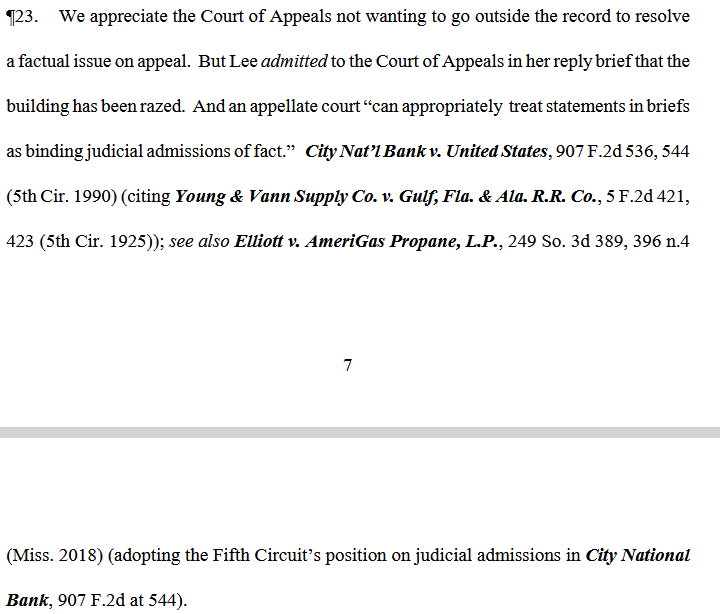The Mississippi Supreme Court handed down four opinions today. There is an interesting Fourth Amendment case of first impression regarding a cell phone search. The lone civil decision has thorough discussions of the doctrines of mootness, standing, and judicial admissions.
Lenoir v. State, 2023-IA-01181-SCT (Criminal – Felony)
Affirming an interlocutory order of the circuit court denying a motion to disqualify the judge and quash the indictment, holding that the joint order of the two circuit judges in the district recusing themselves and appointing a circuit judge from another district was valid under Section 9-1-105(5), that the appointment of another circuit judge did not fail for lack of notice, that the Court would not consider evidence that was not in the record on appeal but attached to a brief, that dismissal was not warranted where he had not been formally appointed at the time the case was presented to the grand jury because there was not evidence of improper influence, that a recused judge’s signature on a the grand jury report did not equate to “hearing any matters arising in this case,” and that an argument that the special judge’s issuance of search warrants is premature.
(7-0: Randolph and Sullivan did not participate)
Watts v. State, 2023-KA-00893-SCT (Criminal – Felony)
Affirming conviction of first degree murder, holding that the evidence was sufficient to support the conviction which was not against the overwhelming weight of the evidence, that a jury instruction on deliberate design killing to which that was no objection was not improper as a matter of law, and that a jury instruction on inferring malice aforethought was not an improper comment on the weight of the evidence.
(9-0)
Knight v. State, 2022-KA-01138-SCT (Criminal – Felony)
Affirming conviction of two counts of exploitation of a child and one count of touching a child, holding that a warrantless search of the defendant’s cellphone did not violate the Fourth Amendment under the private search doctrine, that the prosecutor’s complained-of comments were not so prejudicial or inflammatory as to require reversal, that there was no merit to the challenges to the search warrants, that the claim that the State knowingly presented false evidence was without merit and that it was within the jury’s province to weight inconsistent and contradictory testimony, that the disproportionate sentence argument was barred fro failure to address the Solem factors, passing on the ineffective-assistance-of-counsel claim, and that without error there could be no cumulative error reversal.
(5-1-2: King concurred in part and in the result without writing; Ishee dissented, joined by Sullivan; Randolph did not participate)
Lee v. The City of Pascagoula, 2022-CT-01190-SCT (Civil – State Boards & Agencies)
Vacating judgment of the Court of Appeals and dismissing the appeal for mootness, holding that the appeal was moot because the motel that it involved had been razed and that the plaintiff lacked standing because she no longer had an interest in the property.
(9-0)
Practice Point – The Mississippi Supreme Court relied on Fifth Circuit precedent and held that appellate courts can treat statements in briefs as binding admissions of fact:

Other Orders
Lenoir v. State, 2023-IA-01181-SCT (granting motion to strike)


